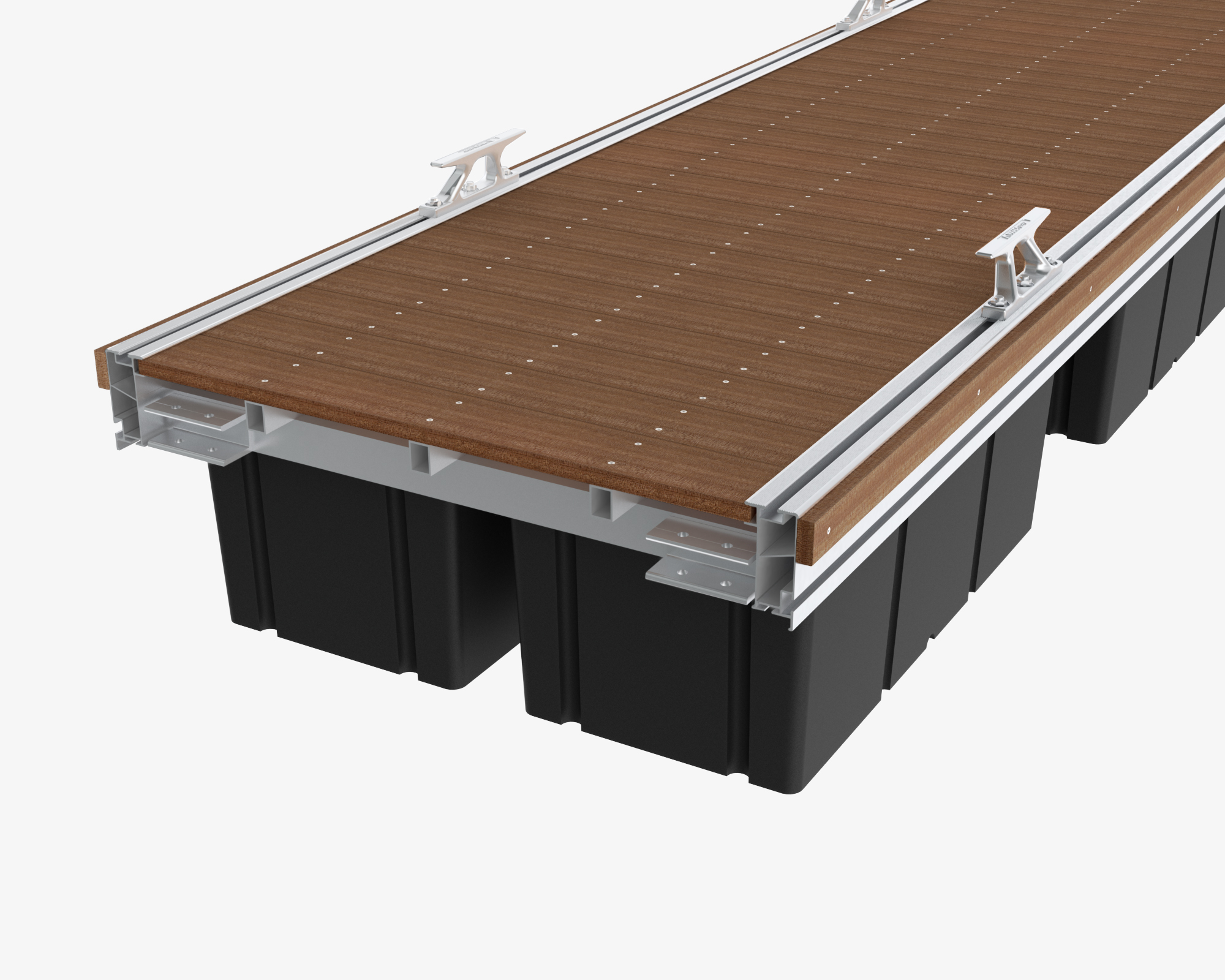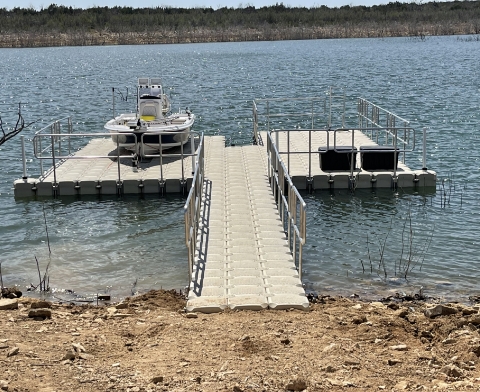Exploring the Comprehensive Floating Dock Providers Provided by Industry Leaders
Exploring the Comprehensive Floating Dock Providers Provided by Industry Leaders
Blog Article
The Ultimate Overview to Selecting the Best Floating Docks
Selecting the suitable floating dock needs a comprehensive understanding of various components that influence both efficiency and durability. Variables such as dock types, materials, and necessary attributes significantly influence your decision-making process.
Comprehending Floating Dock Kind
When choosing a floating dock, it is vital to comprehend the numerous types readily available, as each offers distinctive functions and applications. Floating docks mainly come under three categories: modular, fixed, and pontoon docks.
Modular docks are composed of private areas that can be quickly assembled or reconfigured, making them optimal for changing water degrees and diverse uses, such as commercial procedures or entertainment tasks. Their flexibility allows for customization based on details needs.

Pontoon docks are defined by their buoyant framework, often composed of several pontoons that provide security and assistance. They are especially fit for larger vessels and are frequently utilized in marinas or for waterfront residential properties. Comprehending these types help in picking the most suitable floating dock to meet certain needs, ensuring optimum functionality and security.
Trick Materials for Durability
Choosing the ideal materials for floating docks significantly influences their durability and longevity. One of the most typical products include timber, plastic, metal, and composite materials, each offering distinct benefits and constraints.
Timber, usually favored for its aesthetic appeal, requires normal upkeep to stand up to moisture and degeneration. Pressure-treated lumber can improve resistance to rot, but it may still be at risk to bugs and weathering.

Plastic docks, constructed from high-density polyethylene (HDPE), are immune to rust, UV radiation, and influence, making them a popular selection for seaside settings. Their light-weight nature likewise facilitates very easy setup and relocation.
Metal docks, commonly built from light weight aluminum or galvanized steel, supply outstanding stamina and resilience. They are immune to rust, especially when dealt with, yet might require additional insulation to stop heat accumulation in hot environments.
Composite products, combining wood fibers and plastics, supply the benefits of both wood and plastic, standing up to wetness and fading while calling for minimal upkeep. - floating dock builder
Ultimately, the choice of materials need to line up with ecological problems, planned usage, and maintenance choices to guarantee the floating dock stays useful and visually pleasing with time.
Crucial Functions to Think About
While the selection of materials is vital, considering necessary functions for floating docks is similarly essential to make certain optimal performance and user complete satisfaction. One vital function to assess is the dock's buoyancy ability, which figures out how much weight it can sustain without immersing. floating dock builder. This is important for accommodating watercrafts, personal watercraft, and even leisure activities
Furthermore, portability is a substantial consideration. Depending on your needs, you might desire a dock that is simple to carry and disassemble, particularly if you prepare to move it seasonally. Stability is an additional vital feature; a properly designed floating dock must decrease motion caused by wind and water currents, supplying a protected platform for users.
Safety attributes, such as non-slip surfaces and rounded edges, are likewise essential to stop accidents, especially in wet conditions. In addition, consider the accessibility of devices, such as cleats, bumpers, and ladders, which can improve the functionality of your dock.
Installment and Maintenance Tips
Establishing and maintaining a floating dock needs mindful preparation and attention to detail to guarantee its long life and optimum performance. see page Begin by selecting an appropriate location that minimizes direct exposure to strong currents and waves, which can cause wear and tear. Make certain that the water depth suffices for the dock's elevation which it is secured safely to prevent movement.
During setup, follow the maker's guidelines carefully, as incorrect setting up can endanger security. Usage premium materials resistant to deterioration, such as light weight aluminum or treated wood, to boost durability. Routinely check all components, consisting of drifts, connectors, and securing systems, for indicators of damages or wear.
If your dock makes use of flotation protection devices, guarantee they continue to be intact and free from leaks. By adhering to these installment and upkeep pointers, you can appreciate a reliable and useful floating dock for years to come.
Budgeting for Your Dock
Budgeting for your dock is an essential step that web link can considerably affect your total complete satisfaction and investment in a waterfront residential or commercial property. Developing a clear budget plan helps you navigate the numerous alternatives readily available and ensures you make informed decisions that straighten with your economic capabilities.
Begin by identifying the size and layout of the dock you call for, as these factors will substantially affect the cost. Floating docks can vary considerably in cost, depending on products, buoyancy, and features like accessories and ramps. Research various manufacturers and providers to contrast rates and recognize the market value.
Along with first prices, consider continuous costs such as maintenance, insurance coverage, and prospective repair work. Allot funds for these repeating costs to avoid surprises down the line. It's likewise prudent to budget for any kind of needed licenses or inspections, which might be needed by local guidelines.
Finally, maintain in mind the potential roi. A well-planned dock can improve your residential property's worth and allure, offering a positive economic influence in the long-term. By budgeting successfully, you can ensure that your dock meets your demands without endangering your economic stability.
Conclusion
In verdict, choosing the ideal floating dock requires an extensive analysis of various elements, consisting of dock types, products, essential features, and setup procedures. Cautious factor to consider of monetary restrictions will certainly further make certain a sound investment.

While the selection of materials is crucial, considering vital features for floating docks is similarly essential to make sure optimum efficiency and customer complete satisfaction.Setting up and preserving a floating dock calls for careful planning and focus to detail to ensure its longevity and optimum efficiency. Floating docks can differ significantly in rate, depending on products, buoyancy, and attributes like devices and ramps.In conclusion, selecting the excellent floating web dock requires a detailed analysis of various elements, consisting of dock types, materials, necessary functions, and installation procedures.
Report this page